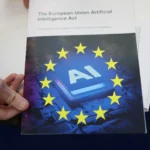Artificial Intelligence (AI) has grown past being a simple futuristic concept. It is now an important force that is changing how businesses operate. It is reshaping how strategies are designed and executed, from supporting better predictive insights to enabling effective risk assessment.
Companies across various industries are taking advantage of AI to predict trends and optimize their operations in real time. As AI becomes more accessible and useful, more brands are embracing it. Read more to learn how it is revolutionizing business strategy today.
What Is a Business Strategy?
A business strategy is essentially a plan that outlines how organizations will achieve their long-term goals. It also details how brands will rise above competitors in the market. It defines the following details:
- The company’s direction
- The target market
- The value it provides to customers
- Competitive advantage
Effective business strategies combine analysis of customer needs, market trends, and internal capabilities. All of these help to guide decision-making and resource allocation. They also help organizations predict changes, handle challenges, and take advantage of new opportunities.
Besides helping to set broad objectives, a business strategy allows you to set measurable goals, track progress, and make the needed changes. It is essentially a blueprint that companies use to align their activities with their targets. By enrolling in DBA schools online, you can understand these strategies better.
Understanding the Impact of AI In Business
Artificial intelligence has continued to change the business landscape, improving efficiency and innovation, and also creating new opportunities across various industries. AI tools for business are pretty effective for analyzing huge volumes of data, discovering patterns, and driving decision-making.
Automation makes it easier to complete repetitive tasks, reduces costs, and frees employees up for high-value tasks. When it comes to customer service, virtual assistants and chatbots deliver fast and personalized support around the clock.
Through predictive analysis, businesses can forecast demand, manage inventory, and adjust marketing strategies. Although there are challenges such as data privacy and ethical considerations, AI helps businesses become more competitive.
6 Ways AI Is Transforming Business Strategy
AI has become a core part of business strategies. It has the power to automate routine tasks, generate data-based insights, and enable real-time decisions. Let’s discuss six ways to transform this aspect of running a business.
Better Predictive Insights
AI is changing business strategy by offering powerful predictive insights gained from various data sources. These insights allow organizations to forecast market trends, operational risks, and customer behavior with greater accuracy. This way, businesses can make proactive decisions and take advantage of any opportunities that come up. They help companies drive sustainable growth and competitiveness with data.
Improved Customer Experiences
Artificial Intelligence enables personalized and responsive consumer experiences, hence improving business strategy. Through machine learning and real-time data analysis, businesses can adjust their recommendations, predict customer needs, and automate support. This personalization increases customer engagement, helping companies differentiate themselves from competitors and meeting customer expectations.
Enhanced Operational Efficiency
AI boosts business strategy by transforming operations and reducing inefficiencies. By taking advantage of automation, predictive maintenance, and process automation, companies can lower costs and increase productivity. These AI-powered systems can easily detect bottlenecks and recommend adjustments, allowing faster and informed decisions. This efficiency helps businesses adapt to market changes and remain competitive in changing industries.
Informed Planning
AI also enables informed planning based on real-time data and advanced analytics, contributing to an effective business strategy. By identifying trends, forecasting outcomes, and modeling scenarios, these tools help to build strategies that are more precise and helpful. This approach can reduce uncertainty, support proper resource use, and help organizations predict change better.
Effective Simulation
AI transforms business strategy by enabling effective simulation of complex scenarios and market dynamics. Through advanced modeling, businesses can test strategies, predict outcomes, and assess risks before implementation. This supports better decision-making, helps avoid trial and error, and helps organizations adapt strategies carefully. This keeps the company competitive in any business environment.
Better Risk Assessment
AI provides better risk assessment through advanced pattern recognition and real-time data analysis, contributing to an effective business strategy. These tools come in handy for identifying emerging threats, vulnerabilities, and anomalies. They help organizations anticipate potential disruptions, make informed decisions, and last longer in the modern business landscape.
Endnotes
AI tools come in handy for developing an effective strategy for your business. These tools offer better predictive insights, effective simulation, risk assessment, informed planning, customer experiences, and enhanced operational efficiency.





